Ever found yourself lying in bed, lights off, when suddenly you feel something brush your arm? Maybe it’s a stray hair… or maybe, just maybe, it’s something with six legs and way too many antennae. Yeah, I know, just the thought of cockroaches traveling on a person is enough to make your skin crawl (mine too). But honestly, is this something you genuinely need to worry about? Or is it just urban legend territory, like alligators in the sewers?
Let’s be real: cockroaches are survivors. They are everywhere—hiding in kitchen cabinets, behind the fridge, under the couch (why do they love dark places so much?). But the idea that they might hitch a ride on your clothes, your bag, or—gulp—your skin? That’s a whole new level of “ick” most of us would prefer not to think about. But, hey, that’s why you’re here, right? To get the facts, the real deal, and maybe a little peace of mind.
So, let’s take a deep breath (seriously, right now, do it), and dig in. We’ll look at what science says, what pest experts have seen, and sprinkle in some real-life stories—because you deserve the truth, not just another scary campfire tale.
Can Cockroaches Travel on a Person? (The Basics)
Alright, first things first—the question that brought you here: can cockroaches travel on a person? The short answer? Yes, but it’s not quite as common as you might think. Cockroaches aren’t like bed bugs or lice; they don’t want to hang out on you. They’re not looking for a new home on your skin or in your hair. But, given the right (or, let’s be honest, wrong) circumstances, a cockroach might find itself crawling onto a person. Let’s break down how and why this could happen.
How Do Cockroaches Move Around?
Cockroaches are masters of hide-and-seek. They scuttle fast, squeeze through tiny cracks, and can even climb up smooth surfaces thanks to the sticky pads on their legs. Roaches are nocturnal, so they’re most active at night, searching for food and water—or sometimes, just a good hiding spot.
But here’s the thing: cockroaches are not naturally drawn to humans. Unlike fleas (who love a good meal) or lice (who actually need us to survive), cockroaches are just opportunists. If you’re in the wrong place at the wrong time—say, you’re reaching into an old box in the garage, or you fell asleep on a couch in a house with a roach problem—one might end up on you. It’s not personal, it’s just bug business.
Scenarios Where Cockroaches Might Travel on People
So, let’s paint a picture. Imagine you’re staying at a hotel that’s, let’s say, seen better days. You toss your bag on the floor, leave your shoes out, and later you find a cockroach scurrying nearby. Could it have crawled into your luggage? Absolutely. That’s how cockroaches sometimes hitch rides from one place to another. People have shared stories online—sometimes with way too much detail—about finding roaches in suitcases, purses, or even tangled in laundry.
But what about cockroaches just crawling on you, like in your hair or under your clothes? It’s rare. Most of the time, if a cockroach is on you, it’s by accident. Maybe you brushed up against a wall where a roach was resting, or you picked up a towel that had an unwanted guest hiding in it. It’s not that they want to travel on people; it’s that they’re looking for warmth, darkness, or just got startled and ran in the wrong direction.
Honestly, I once had a friend who woke up to find a cockroach on her pillow—not exactly the dream wake-up call. She was traumatized (her words, not mine), but the roach was probably just exploring and got lost. It didn’t want to be there any more than she did.
Why Would a Cockroach Climb on a Person?
So, why would a cockroach ever end up on you? Three main reasons:
- Food: If you’ve got crumbs, sticky fingers, or a snack in bed (hey, no judgment), a cockroach might be attracted to the scent.
- Warmth: Cockroaches love warmth. Your body is a toasty spot, especially if the room is cold.
- Accident: Sometimes, it’s just bad luck—a roach was running, you were in the way, and now you’re both regretting it.
But here’s the kicker: cockroaches don’t want to live on you. They’re not parasites. If you shake them off, they’ll run for cover, not try to stay put.
Can Roaches Bite You? What You Need to Know
Now, onto the next big, squirm-inducing question: can roaches bite you? I wish I could say a flat-out “no,” but the truth is a little more complicated.
Can Roaches Bite You in Your Sleep or at Night?
Roaches are, annoyingly, most active when we’re asleep. That’s when they feel safest to explore, hunt for crumbs, and, yes, occasionally crawl onto beds. But do they bite people? It’s rare, but not impossible.
According to pest control experts, cockroach bites are more likely when there’s a big infestation and food is scarce. If there’s nothing else to eat, they might nibble at dead skin, fingernails, or even eyelashes (I know, I know—shudder). But for most people, especially in homes where roach numbers are low, bites are extremely unlikely.
If you’re lying awake at night, imagining roaches feasting on your toes, take a deep breath. It’s not a common thing. But if you’re in a place with a serious roach problem, it’s not totally out of the realm of possibility.
What Do Cockroach Bites Look Like?
If you’re wondering whether that mysterious red bump on your arm could be a roach bite, here’s what you should look for:
- Small, red, itchy bumps (a bit like mosquito bites)
- Usually appear in clusters or lines
- Might show up on fingers, hands, or face (especially if you sleep with your hands near your mouth)
Roach bites aren’t poisonous, but they can get infected if you scratch them. Most people won’t even notice if they get bitten. But if you have a known roach problem and develop unexplained bites, it might be worth talking to a doctor or pest control pro.
Health Risks and Concerns (Looking Beyond the “Ick” Factor)
Okay, let’s get real for a second. The real problem with cockroaches isn’t so much the occasional “accidental passenger” incident—it’s what they carry with them. Roaches are notorious for spreading germs, allergens, and even disease. They’re like tiny, dirty taxis carting bacteria wherever they go.
Diseases and Allergens Spread by Cockroaches
Cockroaches can carry all kinds of nasties: salmonella, E. coli, and even parasites. They pick up germs from garbage, sewage, and just about every other gross place you can think of, then deposit them on your food, counters, and—yep—sometimes on you.
And if you have allergies or asthma? Roaches are not your friends. Their droppings, saliva, and shed skins can trigger allergic reactions and asthma attacks, especially in kids. According to a study on cockroach allergens, exposure can seriously impact your respiratory health.
But here’s the good news: just because a cockroach crawled on you doesn’t mean you’ll get sick. It’s more about long-term exposure and what they leave behind. Think of it like walking through mud—you might get dirty, but it’s not the end of the world unless you track that mud everywhere.
Comparing Risks: Cockroaches vs. Other Household Pests
| Pest | Can Travel on People? | Bites Humans? | Health Risks |
|---|---|---|---|
| Cockroach | Occasionally (accidentally) | Rarely | Allergens, bacteria, disease |
| Bed Bug | Sometimes (usually in luggage/clothes) | Frequently | Itchy bites, allergic reactions |
| Flea | Often (on pets/clothes) | Frequently | Itchy bites, disease |
| Lice | Yes (on hair/scalp) | No (feed on blood) | Itching, secondary infections |
So, in the grand scheme of things, cockroaches aren’t the worst offenders, but they’re also not harmless. Think of them as unwanted party crashers—you don’t want them hanging around, but a quick visit isn’t the end of the world.
What Should You Do If You Think a Cockroach Traveled on You?
Immediate Steps to Take
First off, don’t panic! Seriously, I know it’s easier said than done, but a cockroach crawling on you isn’t a medical emergency. Here’s what you should do:
- Brush or shake off the cockroach (they’re usually just as eager to get away from you).
- Wash your skin with soap and water—cockroaches can leave bacteria behind, so a quick rinse never hurts.
- Change your clothes if you feel better doing so (peace of mind matters!).
- Check your belongings—especially bags, shoes, and laundry—for other unwanted guests.
- If you notice any bites or develop a rash, clean the area and keep an eye on it. If anything seems off, talk to a doctor.
How to Prevent Cockroaches from Getting on You
Prevention is the name of the game. A few small changes can make a big difference:
- Keep things clean: Roaches love crumbs, grease, and clutter. Wipe down surfaces, sweep floors, and take out the trash regularly.
- Store food properly: Use sealed containers, don’t leave pet food out overnight, and be mindful of snacks in bedrooms (I see you, midnight snackers!).
- Declutter: Less clutter means fewer hiding spots for roaches. If you don’t need it, toss it or donate it.
- Seal up cracks and holes: Roaches can squeeze through the tiniest gaps. Caulk up any holes in your walls, around pipes, and near windows.
- Check luggage and bags when traveling: Especially if you’re staying somewhere with known pest issues.
And if you’re dealing with an infestation, don’t try to tough it out alone. Call a pest control professional. Sometimes, you just need to bring in the big guns.
Expert Tips and Real-World Experiences
What Pest Control Experts Say
Pest experts are like detectives—they’ve seen it all, from hidden colonies in kitchen appliances to roaches hiding in laundry baskets. Most agree: while cockroaches can travel on people, it’s not their first choice. They’re much happier hiding in dark, warm places than making you their personal Uber.
One pest professional said, “If cockroaches are regularly ending up on people, it usually means there’s a serious infestation. In those cases, they’re desperate and running out of places to hide.” So if you’re seeing a lot of cockroaches, it’s time to take action—don’t wait until they’re sharing your bed.
Data backs this up: in homes with higher roach populations, encounters between people and roaches go way up. So, keeping your space clean and roach-free is the best way to avoid unwanted visitors.
Stories from People Who’ve Dealt with Cockroach Encounters
Everyone has a story. Here are a couple that might make you feel less alone—and maybe even laugh:
“I once went to put on my running shoes, and a cockroach ran out as I slipped my foot in. I’m not saying I screamed, but let’s just say my neighbors checked on me.” – @shara_
“A roach crawled on my laptop keyboard while I was working late. I closed my laptop and didn’t look at it for two days. Some things you just need time to recover from.” – @bryde
But here’s the thing: everyone survived. No one turned into a cockroach (sorry, Kafka), and while the “ick” factor is real, it’s usually short-lived.
Have a story of your own? Share it! You never know who you’ll help feel a little less alone—and maybe even make someone laugh in the process.
Conclusion
So, what’s the bottom line? Can cockroaches travel on a person? Yep, it can happen, but it’s not something you need to lose sleep over. These bugs are more interested in your crumbs than your company. They might occasionally hitch a ride if you cross paths at the wrong time, but they’re not out to get you—and they’re definitely not planning a takeover.
Remember, the best defense is a clean, clutter-free home and a little awareness. If you ever find a cockroach on you, don’t panic—just shake it off, wash up, and maybe treat yourself to a cup of tea (you’ve earned it). And if you ever feel overwhelmed, reach out for help. There’s no shame in calling in the pros or talking about your bug horror stories.
Above all, know that you’re not alone—everyone has a cockroach story, and you’ll get through this one, too. Got questions, thoughts, or epic tales of bug encounters? Drop them in the comments below. We’re here for you, every step (and every scuttle) of the way!

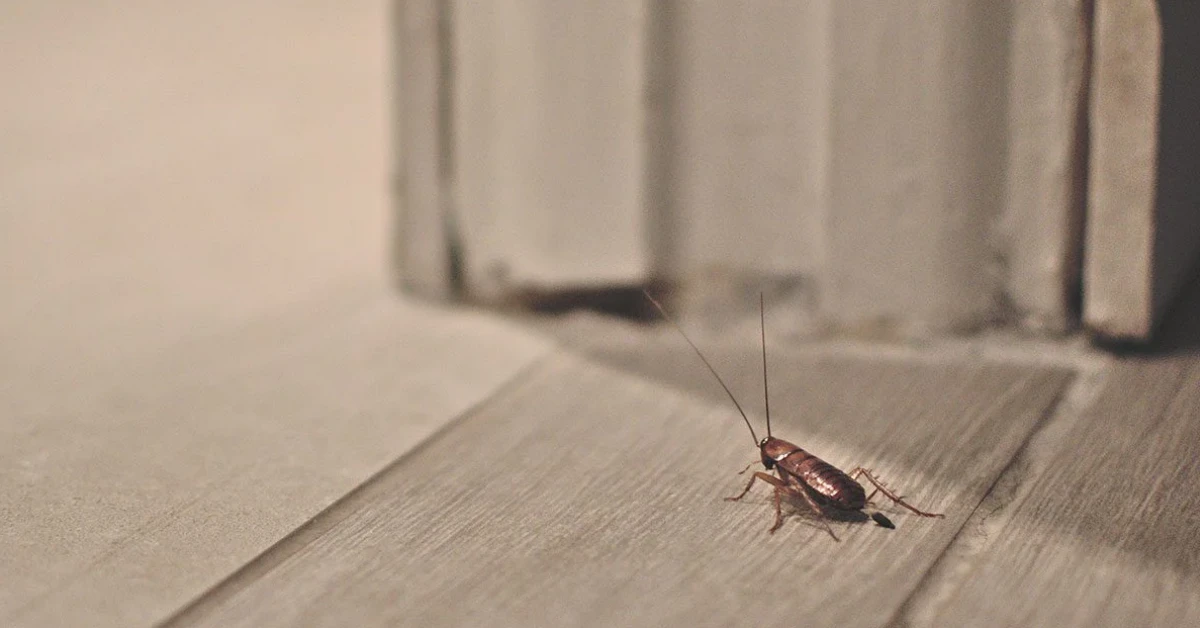
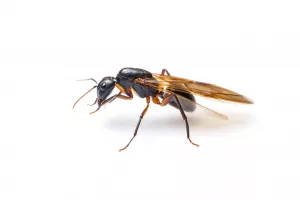

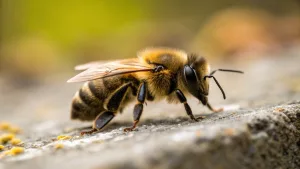

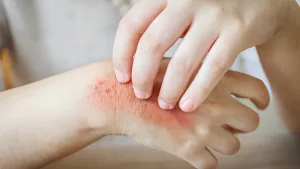
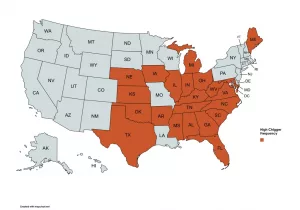

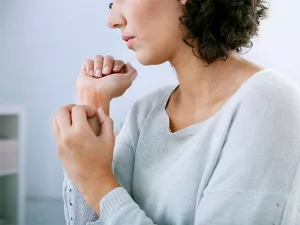


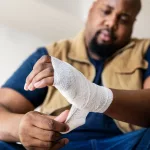







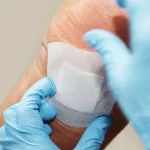



Leave a Reply
You must be logged in to post a comment.